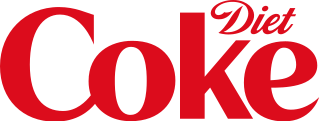
Aspartame is an artificial non-saccharide sweetener 200 times sweeter than sucrose and is commonly used as a sugar substitute in foods and beverages. It is a methyl ester of the aspartic acid/phenylalanine dipeptide with brand names NutraSweet, Equal, and Canderel. Aspartame was approved by the US Food and Drug Administration (FDA) in 1974, and then again in 1981, after approval was revoked in 1980.

Sucralose is an artificial sweetener and sugar substitute. As the majority of ingested sucralose is not metabolized by the body, it adds very little food energy. In the European Union, it is also known under the E number E955. It is produced by chlorination of sucrose, selectively replacing three of the hydroxy groups—in the C1 and C6 positions of the fructose portion and the C4 position of the glucose portion—to give a 1,6-dichloro-1,6-dideoxyfructose–4-chloro-4-deoxygalactose disaccharide. Sucralose is about 600 times sweeter than sucrose, 3 times as sweet as both aspartame and acesulfame potassium, and 2 times as sweet as sodium saccharin.

Mountain Dew, stylized as Mtn Dew in some countries, is a soft drink brand, produced and owned by PepsiCo. The original formula was invented in 1940 by Tennessee beverage bottlers Barney and Ally Hartman. A revised formula was created by Bill Bridgforth in 1958. The rights to this formula were obtained by the Tip Corporation of Marion, Virginia. William H. "Bill" Jones of the Tip Corporation further refined the formula, launching that version of Mountain Dew in 1961. In August 1964, the Mountain Dew brand and production rights were acquired from Tip by the Pepsi-Cola company, and the distribution expanded across the United States and Canada.

A sugar substitute is a food additive that provides a sweetness like that of sugar while containing significantly less food energy than sugar-based sweeteners, making it a zero-calorie or low-calorie sweetener. Artificial sweeteners may be derived through manufacturing of plant extracts or processed by chemical synthesis. Sugar substitute products are commercially available in various forms, such as small pills, powders, and packets.

Diet Coke is a sugar-free and low-calorie soft drink produced and distributed by the Coca-Cola Company. It contains artificial sweeteners instead of sugar. Unveiled on July 8, 1982, and introduced in the United States one month later, it was the first new brand since Coca-Cola's creation in 1886 to use the Coca-Cola trademark. The product quickly overtook the company's existing diet cola, Tab, in sales.

Acesulfame potassium, also known as acesulfame K or Ace K, is a synthetic calorie-free sugar substitute often marketed under the trade names Sunett and Sweet One. In the European Union, it is known under the E number E950. It was discovered accidentally in 1967 by German chemist Karl Clauss at Hoechst AG. Acesulfame potassium is the potassium salt of 6-methyl-1,2,3-oxathiazine-4(3H)-one 2,2-dioxide. It is a white crystalline powder with molecular formula C
4H
4KNO
4S and a molecular weight of 201.24 g/mol.

Diet or light beverages are generally sugar-free, artificially sweetened beverages with few or no calories. They are marketed for diabetics and other people who want to reduce their sugar and/or caloric intake.
Diet Rite is an American brand of no-calorie soft drinks that was originally distributed by the RC Cola company.

Pepsi Max is a low-calorie, sugar-free cola, marketed by PepsiCo as an alternative to Pepsi and Diet Pepsi, except for Norway, where it is the main Pepsi flavor. Pepsi Max is available primarily in Asian, European and Australia/New Zealand markets. While Pepsi Max was released in April 1993, it did not become available in the United States until 2007.

Diet Pepsi, currently stylised in all caps as Pepsi Diet, is a diet carbonated cola soft drink produced by PepsiCo, introduced in 1964 as a variant of Pepsi with no sugar. First test marketed in 1963 under the name Patio Diet Cola, it was re-branded as Diet Pepsi the following year, becoming the first diet cola to be distributed on a national scale in the United States. In the 1960s and 1970s, its competition consisted of the Coca-Cola Company's subsequently discontinued Tab. The United States represents the largest single market for Diet Pepsi.

Sun Drop is a citrus-flavored soft drink produced by Keurig Dr Pepper with a yellowish-green color. Among soft drinks, it is known for its high caffeine content. Orange juice is an ingredient in the drink, and remaining pulp matter from the orange juice provides some of the soft drink's taste and appearance. Sun Drop competes primarily against the Coca-Cola Company's Mello Yello and PepsiCo's Mountain Dew.

Sierra Mist is a discontinued lemon-lime flavored soft drink line. Originally introduced by PepsiCo in 1999, it was eventually made available in all US markets by 2003. The name is a play on Mountain Dew: "sierra" is the Spanish word for "mountain range" and both mist and dew are composed of water droplets. The drink was rebranded as "Mist Twst" in 2016, but reverted to Sierra Mist in 2018. In early 2023, Sierra Mist was replaced by Starry. The brand was aimed at competing with Sprite and 7 Up.

Sweetness is a basic taste most commonly perceived when eating foods rich in sugars. Sweet tastes are generally regarded as pleasurable. In addition to sugars like sucrose, many other chemical compounds are sweet, including aldehydes, ketones, and sugar alcohols. Some are sweet at very low concentrations, allowing their use as non-caloric sugar substitutes. Such non-sugar sweeteners include saccharin, aspartame, sucralose and stevia. Other compounds, such as miraculin, may alter perception of sweetness itself.
Canderel is a brand of artificial sweetener made mainly from aspartame. Canderel is marketed by The Merisant Company, a global corporation with headquarters in Chicago, Illinois, also Switzerland, Mexico, United Kingdom, and Australia.
The artificial sweetener aspartame has been the subject of several controversies since its initial approval by the U.S. Food and Drug Administration (FDA) in 1974. The FDA approval of aspartame was highly contested, beginning with suspicions of its involvement in brain cancer, alleging that the quality of the initial research supporting its safety was inadequate and flawed, and that conflicts of interest marred the 1981 approval of aspartame, previously evaluated by two FDA panels that concluded to keep the approval on hold before further investigation. In 1987, the U.S. Government Accountability Office concluded that the food additive approval process had been followed properly for aspartame. The irregularities fueled a conspiracy theory, which the "Nancy Markle" email hoax circulated, along with claims—counter to the weight of medical evidence—that numerous health conditions are caused by the consumption of aspartame in normal doses.
Canfield's Diet Chocolate Fudge soda is a zero-calorie, aspartame-sweetened carbonated soft drink canned and distributed by the A.J. Canfield Company of Elgin, Illinois, USA, a division of Select Beverages. Production for the midwestern United States is handled by the American Bottling Company, a subsidiary of Keurig Dr Pepper and distribution by Kehe Foods of Chicago.

Pepsi Zero Sugar, is a zero-calorie, sugar-free, formerly ginseng-infused cola sweetened with aspartame and acesulfame K, marketed by PepsiCo. It originally contained nearly twice the caffeine of Pepsi's other cola beverages. Before a recipe change in late 2022, Pepsi Zero Sugar contained 69 milligrams of caffeine per 355 mL (12.5 imp fl oz), versus 36 milligrams in Diet Pepsi. A new logo was introduced in 2020.













